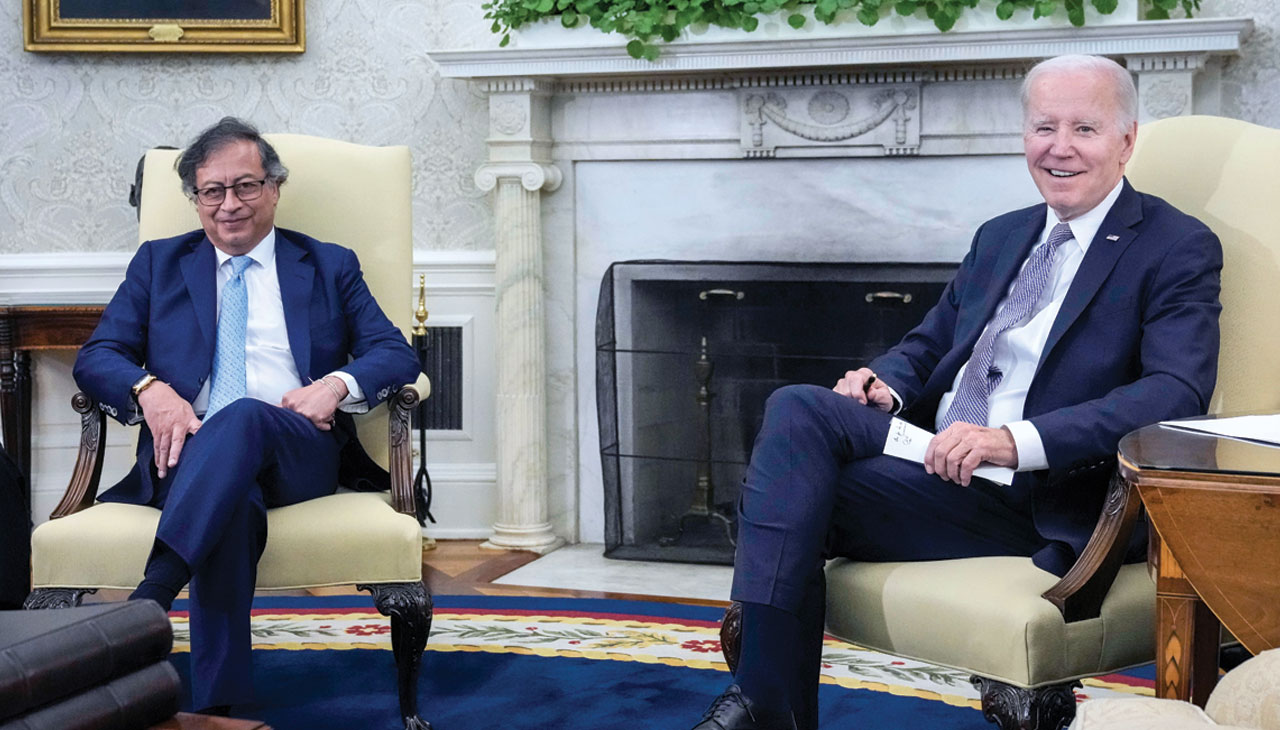
The new good winds | OP-ED
MORE IN THIS SECTION
It is no secret that Latin America’s relations with the United States have been unequal. Always. Support for dictatorships, invasions, overthrow of presidents, trade inequity, undue pressures…
On April 20th, presidents Gustavo Petro and Joe Biden met at the White House with a notorious change in the bilateral agenda, which has been brewing since Petro assumed the Presidency of Colombia eight months ago, amidst the expectation of being the first government with left-wing origins in that country.
Beyond the photos, the meeting has a transcendental backdrop, not only because of Colombia’s position, but also because of its significance for Latin America.
Colombia returned to multilateralism and a new way of relating with the United States, prioritized by the fight against drugs for more than three decades, was set in motion. The ‘architect’ of the change in relations has been Luis Gilberto Murillo, Colombia’s ambassador to the United States. He is the first Afro-Colombian to hold this position, so important in Colombian politics that it has been the steppingstone for several Colombian presidents.
Murillo is an engineer, environmental expert, human rights advocate and spokesman for millions of historically excluded Colombians. As ambassador, he recovered the battered relations with the United States, seriously affected during the government of Iván Duque (2018-2022) for openly supporting Donald Trump’s candidacy from the governing party, violating the principle of not intervening in domestic politics.
The ambassador has an excellent dialogue with representatives of the entire political and business spectrum in the United States, without exclusions. From that point of view, he has openly stated the failure of the anti-drug policy promoted by the United States in Colombia. Now what they are seeking to change is to directly attack the business, not to end the cultivation of illicit crops by fumigating them with glyphosate (a poison) and for the State to have an effective presence in the territories where the coca leaf is grown, safeguarding the farmers who have been forcibly linked to the transnational drug trafficking business.
The revision of the Free Trade Agreement has also been proposed, to make it equitable, adjust it to the new market realities and reduce the gap in the trade balance.
On the other hand, the United States was invited to support Colombia’s total peace policy, as it did in the negotiations with the Revolutionary Armed Forces of Colombia (FARC), which led to the signing of the Peace Agreement in 2016.
In his diplomatic management, Murillo prioritizes Colombia’s cultural, ethnic and environmental diversity and inclusion as factors in developing the agenda with the United States, which has been a two-way street, considering common interests and differences.
RELATED CONTENT
It has meant, among other things, connecting Colombian cities with U.S. cities to bring them closer in common projects, as well as small and medium-sized entrepreneurs, previously ignored when the exchange was reserved for big capital. Just last April 24th, a trade fair was held in Washington with 60 Colombian entrepreneurs interested in accessing the U.S. market, through companies of the same sectors and sizes interested in Colombian products.
Murillo has facilitated meetings between senior officials of both governments on issues of justice, defense, economy, education, peace, climate change... And he is making progress on proposals to address the migration phenomenon. The agenda also includes issues of sustainable development, ports, tourism and renewable energies.
In addition to this, Colombia is concerned about peace in the region, which is why it is leading the frank dialogue between the Venezuelan Government and the opposition, as well as the lifting of the sanctions imposed by the United States. This is the opposite of what happened during the Duque administration, which supported isolating Venezuela from the international context.
Likewise, Colombia has regained international leadership in environmental matters, with climate change as a priority. For this reason, Ambassador Murillo has put it on the table to have a partner in the United States in the energy transition and other measures to save the planet. At the April 20th meeting, Biden agreed with Petro’s proposal to pay foreign debt in exchange for actions against the climate crisis and will present it to the International Monetary Fund. He also pledged $500 million for an Amazon protection fund being promoted by Brazil.
It may seem a subtle difference, but the truth is that now Colombia and the United States are not allies. They are strategic partners, which means changes in the bilateral agenda and the breaking of the imbalance in the relationship.
(*) Colombian journalist, writer and political scientist, editor of AL DÍA.







LEAVE A COMMENT:
Join the discussion! Leave a comment.